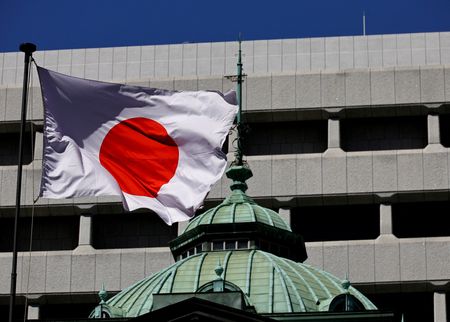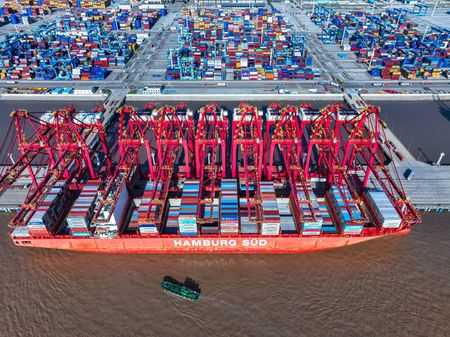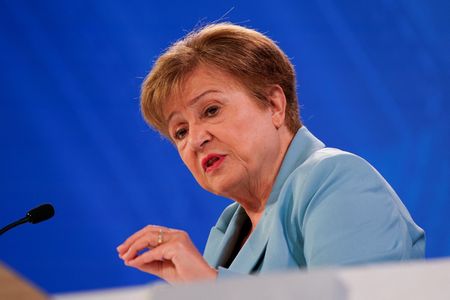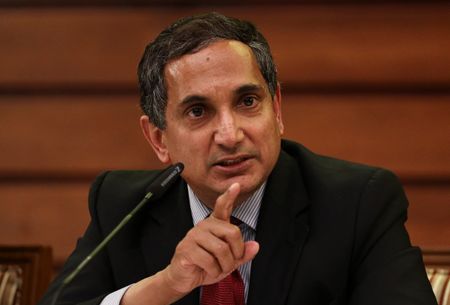By Leika Kihara
WASHINGTON (Reuters) -The Bank of Japan must be careful when normalizing monetary policy due to uncertainty about how the economy would react to a new environment of positive interest rates, Seiichi Shimizu, the central bank’s assistant governor, said on Thursday.
While many advanced economies have long-term inflation expectations anchored at their central banks’ 2% target, the situation in Japan is different in that inflation expectations and underlying inflation remain lower, Shimizu said.
“In Japan, inflation expectations are still below 2%, so we have to lift up expectations and continue to support economic activity,” Shimizu said during a seminar hosted by the Institute of International Finance in Washington.
Central banks around the world face various uncertainties, particularly from trade policies, that would affect their economies and inflation outlooks, he said.
The BOJ confronts another uncertainty unique to Japan, which is unaccustomed to positive interest rates after experiencing a prolonged era of low inflation and rates, Shimizu said.
“We don’t know how exactly the economy will react” to rises in interest rates, Shimizu said.
“This is another type of uncertainty we are facing now,” which requires the BOJ to be “very careful” in assessing the economic fallout from its policy moves.
“If we are sufficiently confident about the future path of the economy, we can proceed with normalization of policy,” Shimizu said.
Japan’s central bank exited a decade-long, massive stimulus program last year and raised its key interest rate to 0.5% in January on the view that the country was on the cusp of durably hitting its 2% inflation target.
The moves marked a historical withdrawal of a radical monetary experiment deployed in 2013 to pull Japan out of decades of economic stagnation and deflation.
While BOJ Governor Kazuo Ueda has signaled the central bank’s readiness to keep raising rates, he has stressed the need to tread cautiously to scrutinize the economic impact of U.S. tariffs. The central bank will hold its next policy meeting on October 29-30.
(Reporting by Leika Kihara; Editing by Andrea Ricci and Paul Simao)











